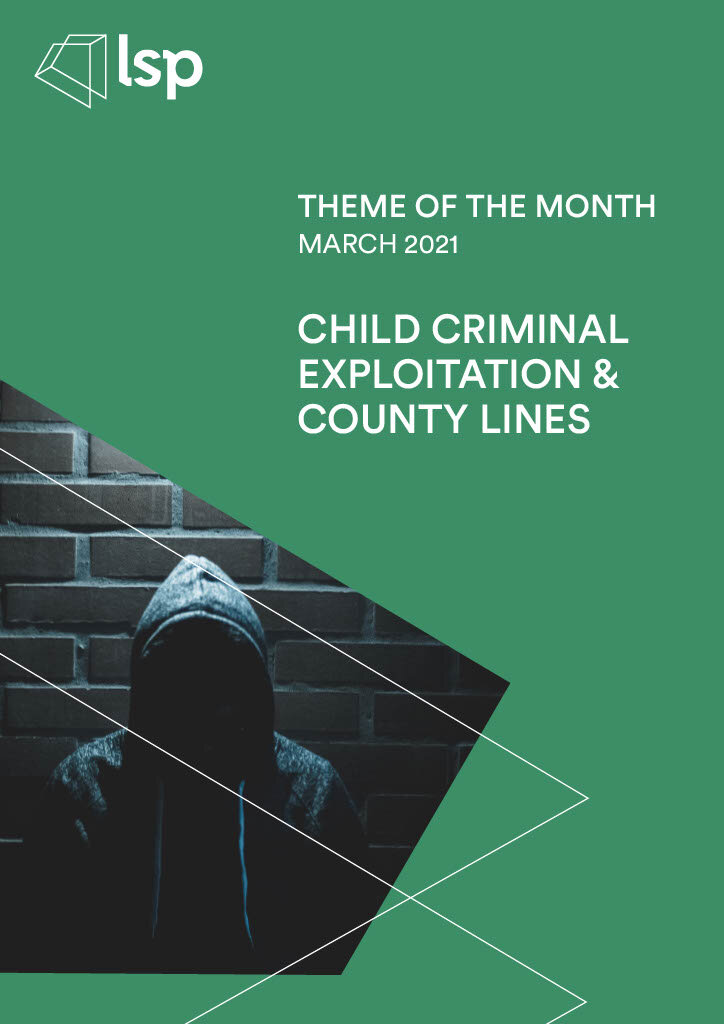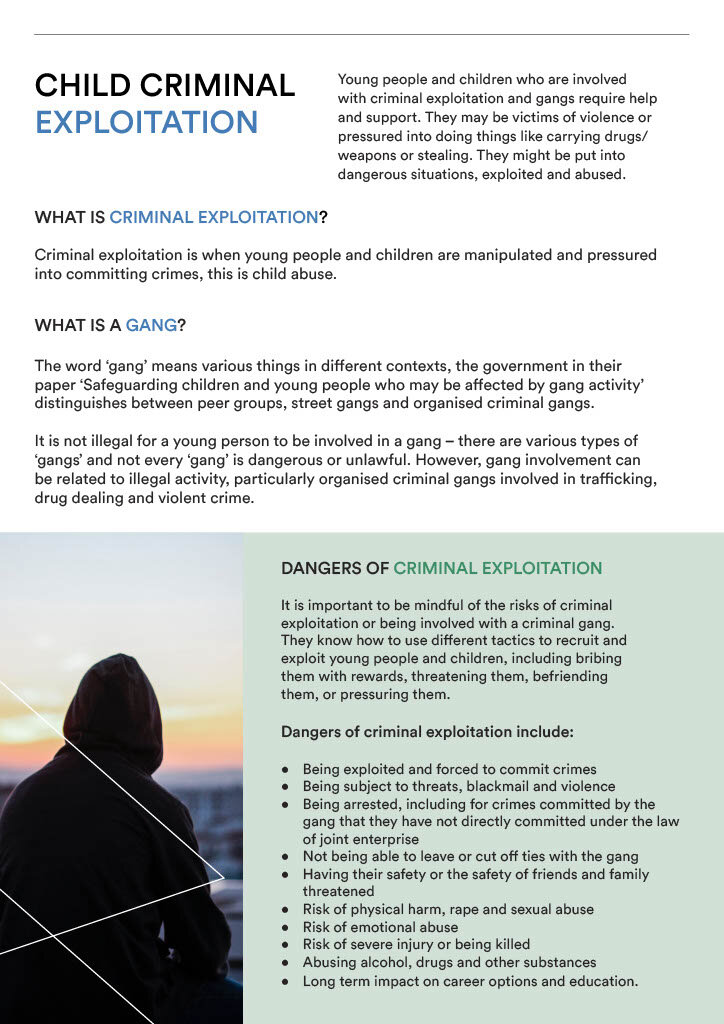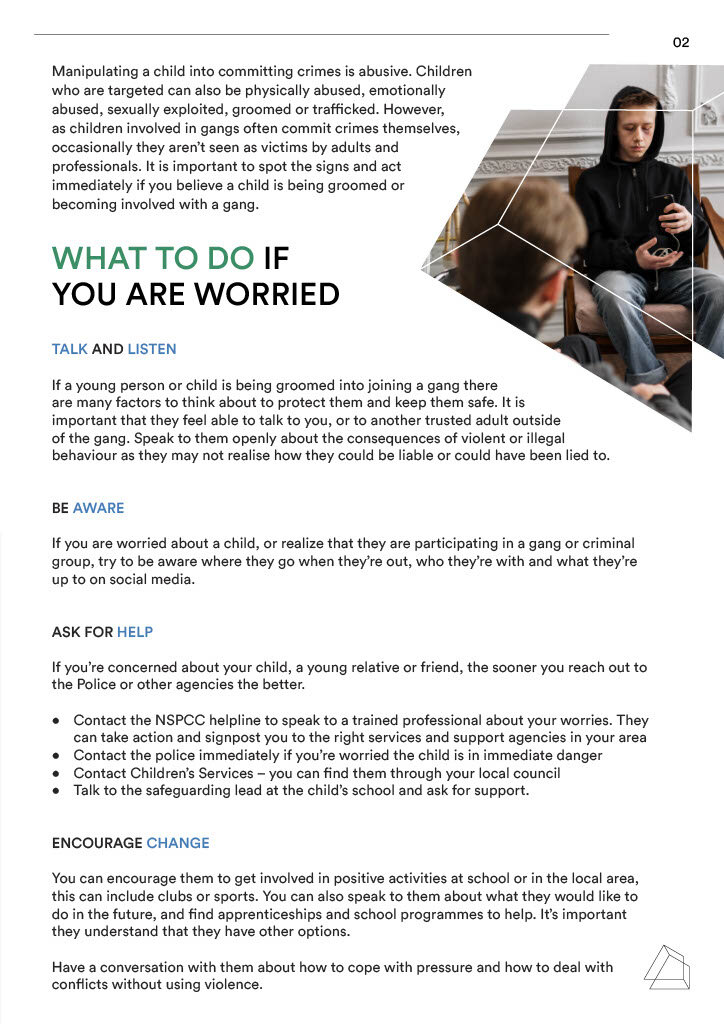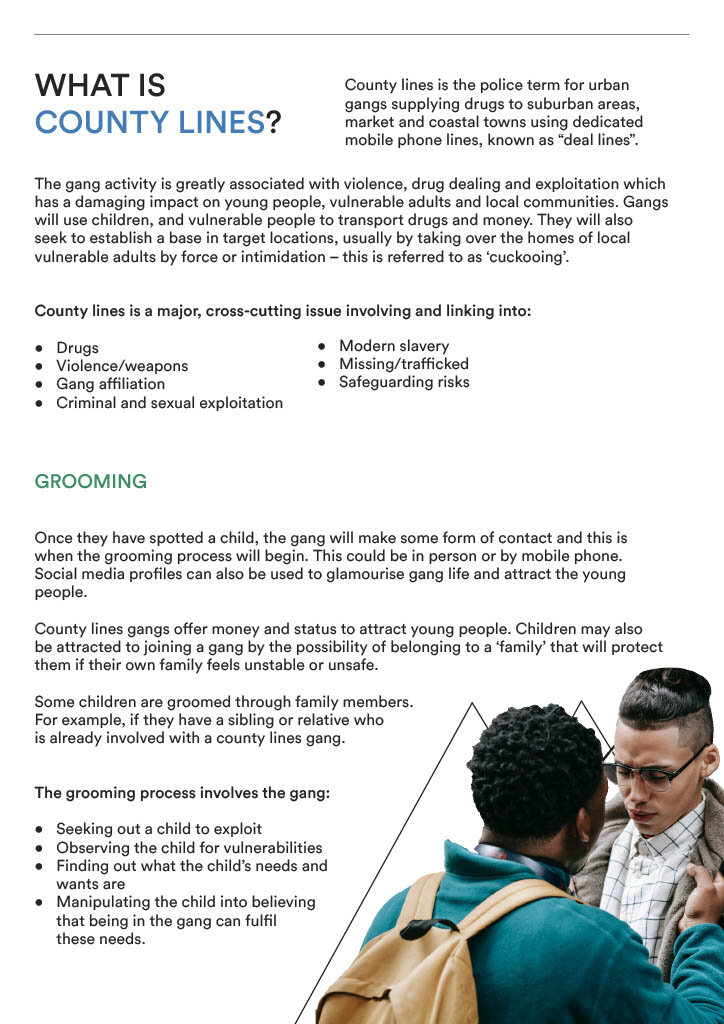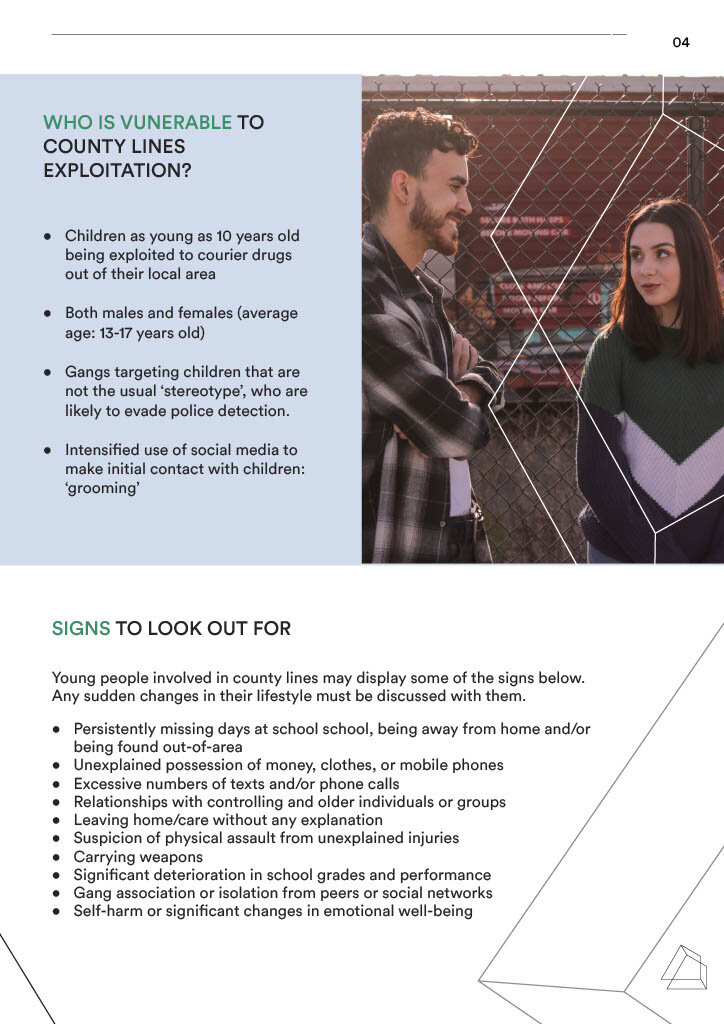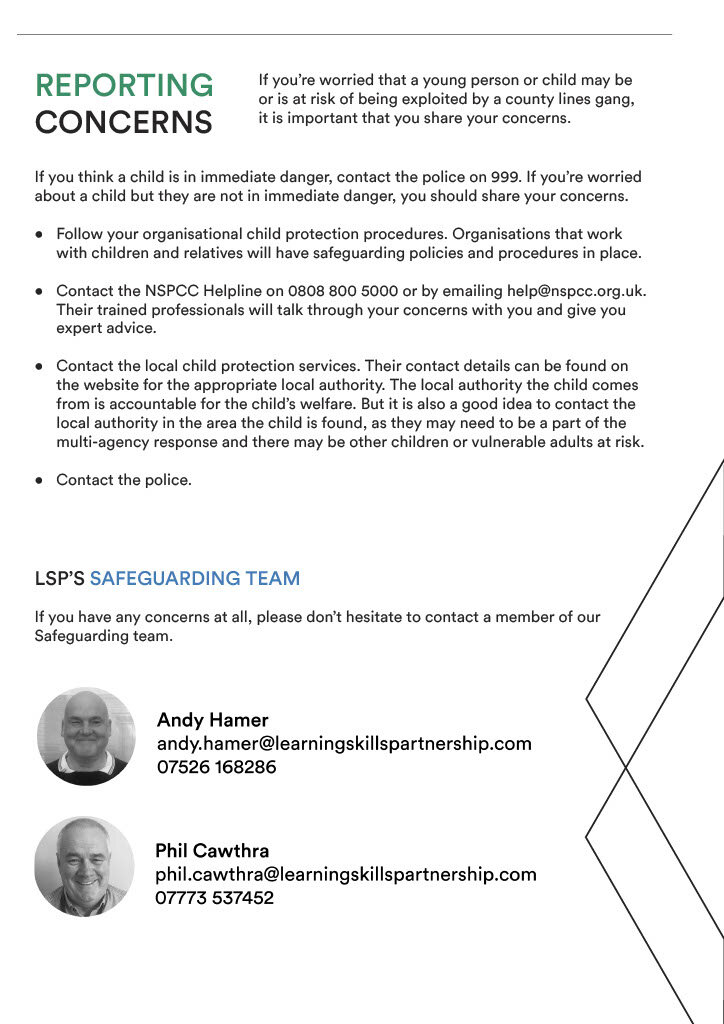Theme of the Month - Child Criminal Exploitation and County Lines
Child Criminal Exploitation
Young people and children who are involved with criminal exploitation and gangs require help and support. They may be victims of violence or pressured into doing things like carrying drugs/weapons or stealing. They might be put into dangerous situations, exploited and abused.
What is Criminal Exploitation?
Criminal exploitation is when young people and children are manipulated and pressured into committing crimes, this is child abuse.
Dangers of Criminal Exploitation
It is important to be mindful of the risks of criminal exploitation or being involved with a criminal gang. They know how to use different tactics to recruit and exploit young people and children, including bribing them with rewards, threatening, befriending, or pressuring them.
Dangers of criminal exploitation include:
Being exploited and forced to commit crimes
Being subject to threats, blackmail and violence
Being arrested, including for crimes committed by the gang that they have not directly committed under the law of joint enterprise
Not being able to leave or cut off ties with the gang
Having their safety or the safety of friends and family threatened
Risk of physical harm, rape and sexual abuse
Risk of emotional abuse
Risk of severe injury or being killed
Abusing alcohol, drugs and other substances
Long term impact on career options and education.
County Lines
County lines is the police term for urban gangs supplying drugs to suburban areas, market and coastal towns using dedicated mobile phone lines, known as “deal lines”.
What is County Lines?
The gang activity is greatly associated with violence, drug dealing and exploitation which has a damaging impact on young people, vulnerable adults and local communities. Gangs will use children, and vulnerable people to transport drugs and money. They will also seek to establish a base in target locations, usually by taking over the homes of local vulnerable adults by force or intimidation – this is referred to as ‘cuckooing’.
County lines is a major, cross-cutting issue involving and linking into:
Drugs
Violence/weapons
Gang affiliation
Criminal and sexual exploitation
Modern slavery
Missing/trafficked
Safeguarding risks
Reporting Concerns
If you think a child is in immediate danger, contact the police on 999. If you’re worried about a child but they are not in immediate danger, you should share your concerns.
Follow your organisational child protection procedures. Organisations that work with children and relatives will have safeguarding policies and procedures in place.
Contact the NSPCC Helpline on 0808 800 5000 or by emailing help@nspcc.org.uk. Their trained professionals will talk through your concerns with you and give you expert advice.
Contact the local child protection services. Their contact details can be found on the website for the appropriate local authority. The local authority the child comes from is accountable for the child’s welfare. But it is also a good idea to contact the local authority in the area the child is found, as they may need to be a part of the multi-agency response and there may be other children or vulnerable adults at risk.
Contact the police.

